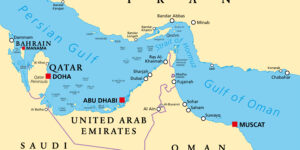Josef Ackermann, the former chief executive of Deutsche Bank AG and chairman of Zurich Insurance, cannot be happy about the timing of a new book by his ex-head of communications at Deutsche Bank AG.
The title is unfortunate too. The invitations to the presentation of “Spaete Reue” (Late Remorse) landed weeks before the Aug. 26 death of Pierre Wauthier, the chief financial officer of Zurich Insurance Group AG. Wauthier named Ackermann in his suicide note.
Ackermann, 65, resigned as chairman of Zurich, though he said Wauthier’s dying words were unfounded. The whole incident casts a shadow over an illustrious career and a legacy the book was supposed to help cement. It begs the question whether there will be a “Late Remorse II.”
Stefan Baron was a close aide to Ackermann for the last five years of his reign at Deutsche Bank, Germany’s largest bank, and still advises him. He wrote the book with his blessing — Ackermann is scheduled to attend the presentation of “Spaete Reue” in Berlin today.
Though an admirer, Baron is journalist enough to omit none of the rockier episodes of the last few years and to quote Ackermann’s critics, mostly the media. A former editor-in-chief of WirtschaftsWoche magazine, he chronicles the banking crisis with pace and drama. Later chapters focusing on Ackermann’s growing political role in the debt crisis and the endlessly tedious debate over his succession are an anti-climax.
The remorse of the title refers to Ackermann’s acknowledgement that the banking industry took a wrong turn. He was, Baron writes, one of the first bankers “to practice self- criticism and push for comprehensive reforms.”
‘Most Hated Company’
Borrowing the language of bankers, Baron notes that Ackermann’s “popularity curve had a great deal of upward potential” when he started working with him in 2007. Long before the bankruptcies and bailouts, Deutsche Bank was Germany’s “most hated company” and Ackermann the “ugly face of capitalism” in the German media, Baron writes.
Much of that dated back to 2004. Fighting a suit involving millions in bonuses paid to executives of Mannesmann AG as a reward for its takeover by Vodafone Group Plc., Ackermann was photographed flashing a victory sign in court. A storm of outrage followed.
Ackermann drove Deutsche Bank’s transformation from a nationally focused institution to one of the world’s top investment banks. He pushed the company to achieve record profits, yet also to develop and sell some of the complex, opaque financial products that precipitated the crisis.
Seoul Dinner
As the banking crisis wore on and Deutsche Bank faced mounting lawsuits, Ackermann grew pensive, Baron writes. A defining moment came in Seoul at a G20 meeting, when he was sitting next to South Korean President Lee Myung-Bak at dinner as the stock market crashed because of a Deutsche Bank derivative transaction.
“Something broke inside him,” Baron writes. “He was deeply disappointed and felt betrayed.”
Baron’s view is that Ackermann’s years in Germany uprooted him from the values instilled by his hard-working Swiss family. The crisis, as Baron describes it, was a jolt that reset his moral compass.
Ackermann responded fast, scaling back Deutsche Bank’s riskier businesses and building its domestic banking, Baron writes. Deutsche Bank escaped relatively unscathed and never needed to borrow from the German government’s crisis fund.
Shadow Chancellor
Meanwhile, its chief executive grew in political stature. The Swiss native at first had little understanding of the full sweep of his role as Deutsche Bank CEO, traditionally a “kind of shadow chancellor of the republic,” Baron writes. He became a fixture on the euro debt-crisis scene, serving as a mediator between government and business.
Baron describes a life lived in airplanes. Ackermann’s Frankfurt desk was empty, his rented four-room apartment in the city purely functional. He didn’t eat regularly and slept little, switching time zones frequently.
His favorite hotel meal was curried sausage and fries with a glass of red wine, and his secretaries kept a stash of appropriately Swiss Toblerone in a drawer for emergency snacking. Leisure was a “foreign word” to the banker, whose working week was between 80 and 100 hours.
Grilling the Messenger
So he is hard on himself. What of speculation that he applied too much pressure on Wauthier? Baron gives evidence Ackermann can be tough on others too. Though he wants to hear the worst and pledges not to shoot the messenger, he subjects any bearer of bad news to a grilling, he says.
“Sometimes when he was particularly demanding I wondered how many people in the bank would go out of their way to avoid that stress,” Baron writes.
Calls from Ackermann could come at any time and nobody got thanks for working through the night, he says. Given the standards Ackermann sets for himself, none of this seems surprising or extraordinary.
Demanding and difficult he must be. The question is whether he pushed too hard. Ackermann is once again fighting for a reputation he must have hoped was finally safe.
(“Spaete Reue” is published by Econ Verlag, price 24.99 euros in Germany. The English-language rights have not so far been sold.)
Editors: Mark Beech, Farah Nayeri.




















 Focus on Ski Guides After Deadly California Avalanche Could Lead to Criminal Charges, Civil Suits
Focus on Ski Guides After Deadly California Avalanche Could Lead to Criminal Charges, Civil Suits  State Farm Mutual to Pay $5B Dividend to Auto Insurance Customers
State Farm Mutual to Pay $5B Dividend to Auto Insurance Customers  Hackers Used AI to Breach 600 Firewalls in Weeks, Amazon Says
Hackers Used AI to Breach 600 Firewalls in Weeks, Amazon Says  From Skill to System: The Next Chapter in Insurance Claims Negotiation
From Skill to System: The Next Chapter in Insurance Claims Negotiation 